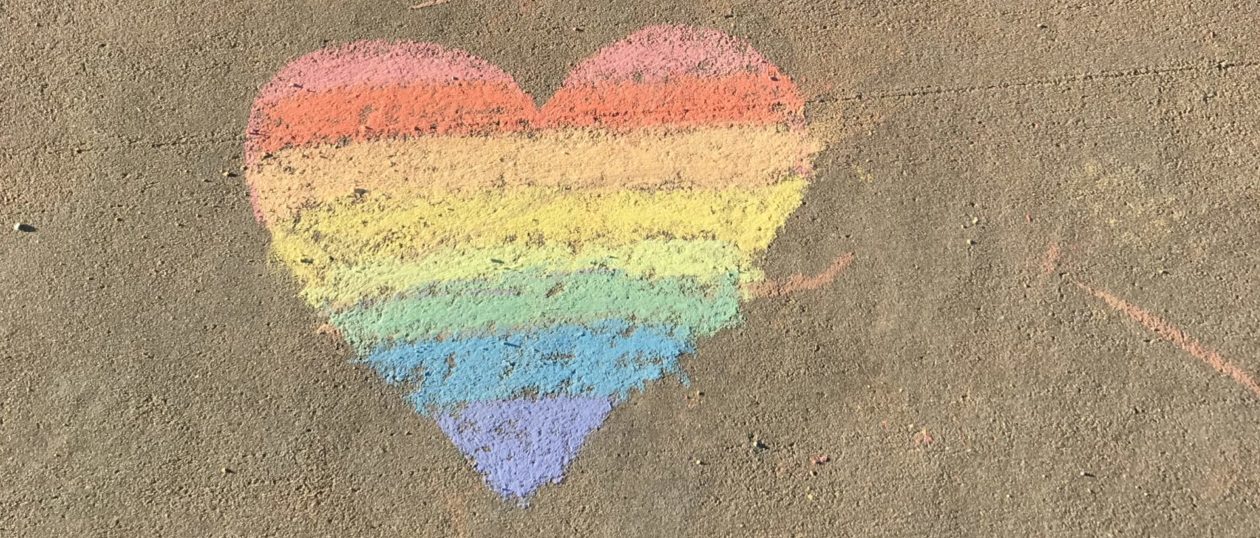Maybe society (especially FaceBook) should come with Community Agreements like our GLSEN presentations and workshops. These are a list of expectations – a semi-formal social contract that we agree to use in the space. When we set agreements like: Lean into Discomfort, Call In instead of Call Out, Oops/Ouch, and Use the Language You Have, we set expectations that IT’S OK to make mistakes because that’s how we learn.
Community Agreements allow for more discomfort. Discomfort = growth.
When we discuss Community Agreements, we let people know that since we all come from different experiences, education, and levels of understanding around sensitive topics, people may still be inadvertently using harmful language or ideas. Just because people are using the language they have and it may be old or offensive, it doesn’t mean they are a terrible person. When we know better, we do better. No shame required; just an opportunity for learning.
When we need to call in someone on some language or idea that they’ve used that is offensive (an ouch to someone), or perpetuates systems of power (an ouch to society), this Community Agreement can help them understand that it’s just a mistake (an oops) on their part. It doesn’t mean they’re an awful person or that there is any judgement, and is a teachable/learning moment. We call them in to learning about things beyond their privilege and comfort. It’s an invitation.
It often feels a little (or a lot) uncomfortable to be called in, especially publicly, especially if you’re new to conversations like this. Community Agreements help set the idea that we are all here to learn and that we all WANT to learn. This social contract assumes that we don’t want to hurt each other and are willing to become introspective about any harm we may be accidentally causing. Ultimately, these simple agreements can increase the level of discomfort participants are willing to tolerate in order to learn.
A Real Learning Example
Last night a colleague and I did a short presentation and discussion for a college class. I was thankful that we set Community Agreements, because we did need to gently call in someone on their language. A well-intentioned, kind person inadvertently said that she had “colored friends” in the midst of giving an answer. I think she surprised even herself because she was nervous about speaking up. As the presenter, I could have ignored it, but that’s not my job. I also saw how the Black people and People of Color in the room reacted to that comment (an ouch for them).
Because we’d set Community Agreements, after she spoke we took a quick pause. I briefly addressed how we use the term “People of Color”, or more specific identifiers like “Black” now instead of “colored”. This humble learner took the Call In wonderfully, apologized quickly for the “ouch”, and we continued on. That moment of vulnerability and humility allowed others in the room to lean into their discomfort more as well.
Amygdala Hijack Keeps People Quiet
One of the people in the room with a marginalized identity explained how sometimes they want to be the person to call someone in when someone says something that’s an “ouch” for them, but they can’t. They’re frozen.
The gift of that person speaking their experience allowed an opportunity to explain a little about amygdala hijack. The amygdala is part of our brain that controls our fight, flight, or freeze response, and when triggered, it hijacks our brains. It sends an emergency alert through our body and washes out our thinking, reasoning, and logic capacities. It then takes time for the stress hormones – cortisol and adrenaline – to fade away enough to be able to think rationally again. Sometimes it takes seconds to recover, and sometimes it takes hours.
Allyship
That was an eye-opening moment for many in the room. Many people with identities that inherently hold privilege assume that their “friends of color” or “LGBTQ friends” will say something if they make them uncomfortable. They learned in that moment that is not always the case. In fact, maybe it’s rarely the case. We discussed that the burden to intervene or educate should not be on the people with marginalized identities. That’s often a job for allies.
At the end of the evening, one of the Black women came up to me and thanked me for being her “light”. As an ally, I’m always glad when I know I’ve made someone feel more comfortable. However, I do this work even if there is no thanks, because the work of allyship shouldn’t be done for approval or thanks; it should be done because it’s necessary.
In this work of creating a safer, more inclusive society for everyone, we’re all going to make mistakes. It’s OK to make mistakes, as long as we’re willing to learn from them. There will always be people who have learned a little more on this journey, so when they call you in, the best thing to do is to say “thank you”, maybe apologize, and move on instead of getting defensive. After all, it’s not about you or your feelings, it’s about ending the actual harm that is done to others. I think if we keep that at the forefront of our minds, we can do this. We can lean into discomfort. We can call in others or be called in, and we can change the world, friends!
